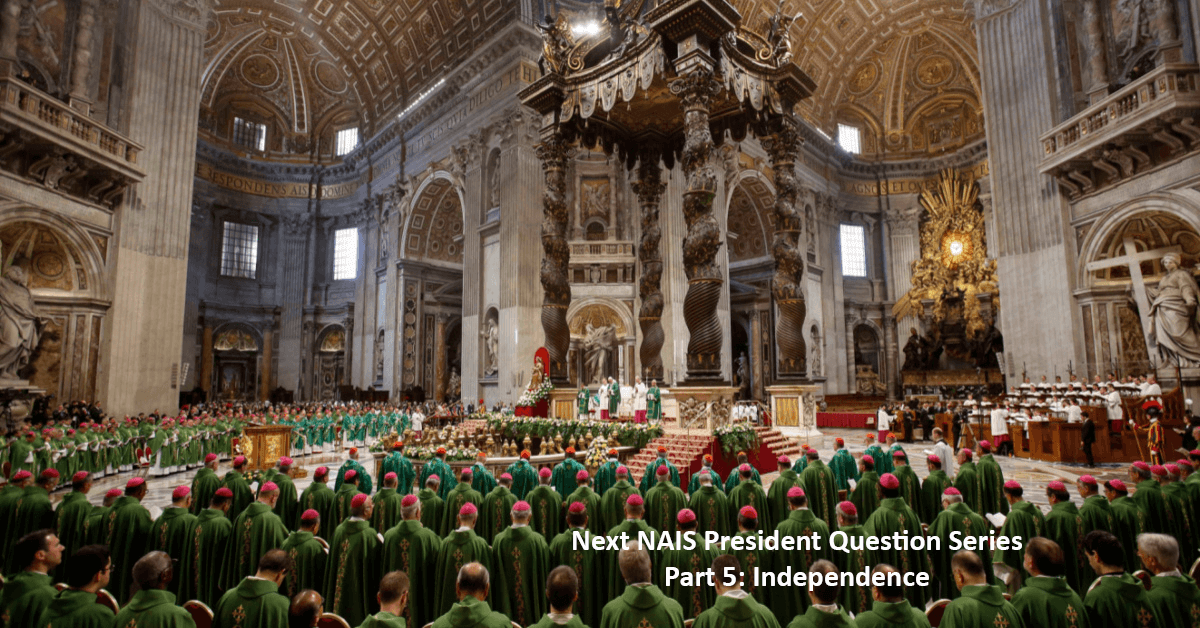September 12, 2022
Note from the editor:
Most of our readers know that NAIS is searching for a new President. We would like the search to be a more open process, therefore subject to questions from independent school constituents. Consequently, we are publishing a series of articles with one question each to candidates for the next NAIS President. This series includes:
1. Part 1: On Curriculum & Knowledge | Sanje Ratnavale
2. Part 2: Supporting Teacher Voices | Alden Blodget
3. Part 3: Equity | Ray Ravaglia
4. Part 4: Emotional Crises & Leading From the Heart | Joshua Freedman
Question for the next NAIS President: How will you ensure that independent schools remain independent?
As I (Brent) have written before, the “‘uniqueness’ [of each independent school] is shaped by its relationship to every other school, by the environment where it exists, and by its history and present,” and our relationship with local, state, and national governments has also shaped independent schools’ policies and programs. We are in(ter)dependent schools, but to what degree? Lately, “[t]here is definitely a sense that the old notion of the cloistered independent school (black…


